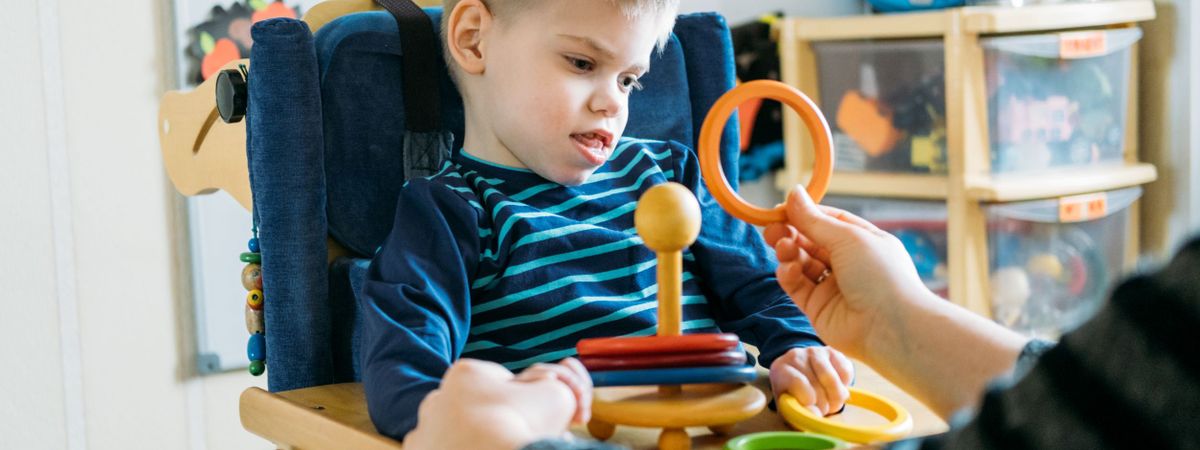Increasing numbers of pupils have been identified as having Special Educational Needs
According to DFE figures released in June 2021, the number of pupils with Education, Heal and Care (EHC) plans has increased by 3.7% in the last year. The total number of pupils with SEN but no EHC plan was also up. This increase is in line with a trend that started in 2017 and shows no sign of slowing down. Schools are getting better at identifying children with special needs and getting them the extra help they need.
The Demand for Special Needs Teachers and Assistants
At Protocol Education, we have a long and successful history working with special and mainstream schools to support pupils with special needs. We work with the full range of special schools and units, including those supporting pupils with:
Profound and multiple learning difficulties
Specific learning difficulties
Physical impairment
Multi-sensory impairment
Visual impairment
Hearing impairment
Social, emotional and mental health
Speech, language and communication needs
Attention, deficit hyperactivity disorder
Autistic spectrum condition
There is a constant demand for teachers and learning support assistants to work with special needs children and an EHC plan. To help us fulfil this demand, Protocol Education delivers a range of CPD courses to give mainstream teachers and TAs the skills and confidence needed to work effectively within SEN.
Essential Skills for SEN Teachers and Support
Over the summer, our special needs team ran a series of webinars introducing the main skills needed to work in a special school environment. Don’t worry if you missed them; complete recordings of the Introduction to Special Needs webinars are here.
Our own SEN specialist, Ruth Bell, has created a list of skills and aptitudes she feels anyone working in special needs requires:
Be proactive and willing.
Be enthusiastic. It might feel like groundhog day at times, but you get back what you put in thousand-fold.
Communicate with colleagues.
Be patient.
Be prepared to get messy, particularly if working with children with PMLD.
Know how to differentiate: each child learns differently.
Be prepared to be flexible
Be a happy team player.
Always listen without judgement.
Don’t take anything personally.
Hone your de-escalation skills when you encounter challenging behaviours: know the triggers, establish rapport, have a sense of humour.
Working in an Autism Spectrum Disorders (ASD) School or Unit
According to the DFE figures, the most common type of need for those with an EHC plan is Autistic Spectrum Disorders and for those with SEN support, Speech, Language and Communication needs. Working with these groups requires some specialist skills and approaches. These are the key principles you need to keep in mind and aspire to when working with children on the Autistic Spectrum.
Patient communication, with clear and concise guidance for pupils.
Routine and structure can be very important to people with autism.
Consistency is key. Changing your mind or the routine will not aid their learning.
It may be difficult for a person with autism to take a new approach to something. Young people on the autism spectrum will cope better with change if they are prepared for it in advance.
Behaviour management is a balancing act.
Children and young people with autism may experience some form of sensory sensitivity. This can occur in one or more of the seven senses – sight, sound, smell, touch, taste, balance and body awareness.
Some Final Words of Wisdom
Kurt Knoche is a New Zealand trained primary teacher who has worked in Special Needs schools in the UK for many years and is now the Head of Post-16 at a large specialist SEMH school in London. Here’s what Kurt looks for in a teacher or support worker:
“An open mind and a reasonably thick skin! I look for staff who are prepared to engage with students and to listen to advice. I look for someone who is not judgemental about behaviours and can forget yesterday and focus on the positives. They should have an open mind with a degree of empathy. Be a team member, have a sense of self-confidence. Be resilient and have a sense of humour!”




